Accidents in Self-Driving Cars, How Common are They?

It was not too long ago we wondered what the world would be like with self-driving cars on the road. Science fiction films portrayed it as a seamless world where smart vehicles would never crash into each other, and bad traffic was a thing of the past. Unfortunately, we are not there yet. Brands such as Tesla and Uber’s ATG have tested some of their self-driving vehicles on public roads, some of which have fatal consequences, which has made the public more skeptical about trusting and embracing the technology.
Recent poll data by the Brookings Institution shows that only 21% of surveyed adults were inclined to ride a self-driving car, compared to 61% who are not. A significant from surveys conducted in previous years. The decline in favorability is mostly due to the number of reported incidents involving self-driving cars. One of the latest and most publicized accidents happened in March 2018 in Arizona, when a self-driving Uber (manned by a driver) hit and killed a jaywalking pedestrian. The investigation concluded that the vehicle could not recognize a pedestrian unless the person were close or near a crosswalk. Uber stopped it’s autonomous vehicle testing as the investigation developed, and has since added several safety features to the models.
Self-driving cars are classified into six levels of ‘autonomy,’ with level 5 being completely autonomous and without any constraints of human operation. Most Tesla vehicles operate at level 3, while Uber’s ATG cars are usually level 4 or 5. Research has shown that levels 2-3 of autonomy might prove more dangerous than lower or higher levels because of the uncertain level of human control.

The path to having completely safe autonomous vehicles involves a lot of trial and error that unfortunately affects other drivers and pedestrians alike. Because we are still going through the very early stages of this technology, the law related to these accidents is still developing. It could be very complicated, especially around who or what is at fault. Here are some of the conclusions that were made in recent months after high-profile accidents:
- The technology is still too immature, and it will take several years of testing before the public can trust autonomous vehicles. Machine learning itself is a field of study that is still developing, but in this case, the lives of people are at risk, so testing is a lot more complicated.
- Automakers will need to consider testing in fabricated environments where the autonomous vehicles are exposed to all of the same possible road conditions and challenges, but without the risk of injuring or fatally striking other drivers, passengers or pedestrians.
- Law-makers should start preparing for the different possible legal scenarios that will arise as these vehicles continue testing, considering the laws of the testing states and the previously recorded incidents. Using previous cases as a precedent will make it easier to allocate liability in the future. Currently, laws about fault involving the driver and the vehicle manufacturer are unclear.
- Both manufacturers and the government must assess the safety of the continued development of autonomous vehicles. Many other accidents may occur while the technology develops. It is the responsibility of the different parties to decide the next step in the evolution of personal transportation.
While studies show that self-driving vehicles might only be able to prevent one-third of crashes if the systems are set up correctly, car manufacturers are hoping to implement these technologies soon. Testing by leading producers, mostly Tesla and Uber, have continued in some cities with fewer regulations. It is unlikely to find yourself in an accident with an autonomous vehicle, but as we have seen in recent years, it is not impossible. If you are the victim of an accident involving a self-driving car, do not hesitate to contact 1-800-411-PAIN, and our legal experts will guide you through this challenging process and get you the medical care you may need.
It can be a complicated process to figure out liability when an autonomous car is involved; for this reason, make sure trusted legal and medical professionals represent you. Call Path at 1-800-411-PAIN, and we will take care of it!


